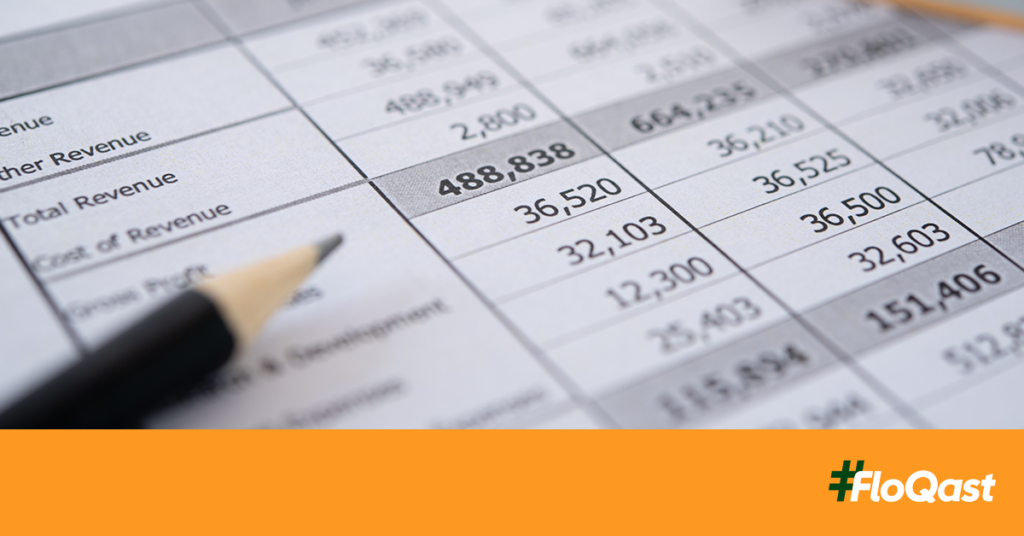
Blog -




Accounting
Back to the Basics: What Skills Are Required for Accounting?
Whether it’s your next-door neighbor, your tax professional who prepares your taxes, or the person in your office that writes your paycheck, everyone knows an accountant.
What comes to mind when you think of that person? Focused, analytical, intelligent, and loves math? Those are probably at the top of the list.
Working in accounting requires various important skills. You’ll either need to born with them or willing to get them to have an accounting career.
What Are the Three Categories of Skills Needed by Accountants?
| Skills needed to work as an accountant | ||
| Technical | Technology | Personal |
| U.S. GAAP | Basic computer skills | Adaptability |
| Federal tax laws | Microsoft Excel | Analytical/Critical thinking |
| State tax laws | Quickbooks/SAP/Oracle/Sage | Detail-focused |
| Tax prep software | Organization |
What Are Technical Skills for an Accountant?
Accounting professionals learn technical skills via education. Most entry-level positions will require at least a four year degree in accounting.
These technical skills are also known as “accounting skills” or hard skills and set accountants apart from other financial specialists.
All accounting education starts with learning U.S. generally accepted accounting principles (GAAP). These are the fundamental agreed-upon rules that the accounting profession has agreed to follow when recording financial transactions.
The book of U.S. GAAP is called the Accounting Standards Codification and contains thousands of pages.
These rules cover things like:
- Applying consistent methods when recording transactions
- Recording revenue (including when and how to value it)
- Classifying transactions for financial statements
Depending on your goals and the type of accounting job you want, an accountant will also need to know the federal tax laws for both businesses and individuals.
If your goal is to prepare tax returns and provide tax advice, being an expert on the U.S. and your state’s tax laws is mandatory.
BLOCK QUOTE: If your goal is to become a certified public accountant (CPA), you’ll need to be an expert on both U.S. GAAP and U.S. tax law.
The CPA designation is the highest, most reputable, and well-known credential in the accounting industry.
Becoming a CPA requires state regulatory approval that includes these requirements:
- Obtaining at least a Master’s degree in accountancy
- Passing a rigorous multi-day exam
- Gaining work experience for a few years working under the direct supervision of CPA
Technology Skills in Accounting
Accountants need to embrace technology. Writing emails, using accounting programs, Microsoft Excel, and financial audit software are a part of the daily life of accountants. And with increased automation of basic bookkeeping tasks, accountants need to be technologically savvy.
Depending on your career goals and path, you may not need to be an expert on all accounting software. Chances are, you’ll need only to know one or two.
If you plan to be an accountant for small businesses, you’ll need to be an expert at Quickbooks.
Suppose you plan to work as an accountant for larger companies. In that case, you’ll need to be an expert at various enterprise resource planning (ERP) software programs like SAP, Oracle’s NetSuite, or Microsoft Dynamics.
If you plan to be an accountant preparing tax returns for businesses and individuals, you’ll need to know tax software like CCH or UltraTax.
Personal Skills in Accounting
While accountants are typically known for their technical skills, there are some soft skills required to be an accountant.
Adaptability/problem-solving skills
Accountants need to be able to adapt and solve problems because they’re required to interpret unique facts. The uniqueness of each client or company’s financial situation requires you to adjust and learn quickly.
You’ll need to trust your judgment to make decisions when information is unclear.
Analytical/critical thinking skills
One of the top skills needed for accounting is making sense of dense and complex financial data. That’s because a large part of an accountant’s day-to-day tasks involves analyzing and interpreting numbers and information.
Looking for patterns can help auditors identify errors. Reviewing a client’s financial documents can help tax accountants prepare tax returns.
Accountants need to have skills that allow them to review countless different situations and facts to come up with answers. And getting the correct answer has serious implications for clients or your employer.
Detail-focused
A keen eye for details is another crucial skill for accounting. Since preparing accurate financial reports is the accountant’s job, focusing on the small details ensures financial transactions are correctly recorded.
Organization
Most accountants work on several projects throughout the day. That means being meticulously organized is essential.
If you’re working at a public accounting firm, you’ll likely be working on three or more client projects at once. Documenting your work clearly lets you and your manager know where you left off.
Strong organizational skills also lead to effective time management, which is a must when you’re juggling multiple projects at once.
What Are 5 Important Qualities Necessary for Accounting Careers?
Accounting careers can take many different paths. It largely depends on your interests.
Some types of accounting functions you might complete include:
- Auditing
- Bookkeeping
- Accounts payable
- Bank reconciliations
- Fixed asset depreciation
- Financial forecasting
- Financial reporting
- Tax planning and preparation
- Data analysis
| Top five qualities of an accountant |
| Math lover |
| Ethical/trustworthy |
| Critical thinker |
| Problem solver |
| Excellent communicator |
Math lovers
Since accountants work with numbers all day, you’ll need to enjoy math and working with numbers.
Being able to look at numbers and understand what they mean is just as important as doing the math correctly. Being an accountant is about being able to explain the story behind the numbers.
For example, if you look at a balance sheet and see that accounts receivable increased, you’ll need to understand why and communicate that to your team members.
Ethical and trustworthy
Accountants are entrusted with personal and company financial information. You’ll be expected to keep details private and confidential.
Along these same lines, you’ll need to make the right decisions when it comes to recording transactions properly in accordance with U.S. GAAP and U.S. tax laws.
Excellent Communicators
BLOCK QUOTE: Accountants need excellent communication skills.
Accountants need to explain complex financial and tax information in simple terms for clients and non-accountants to understand. This skill is the most challenging for many accountants to perfect.
Excellent writing skills are a must. As an accountant, you’ll need to document your work clearly and concisely so others can understand what you did and why you did it that way. And you’ll also need to write to clients providing details about their finances.
Being a successful accountant means having the right skills and qualities. If you’re just getting started in the accounting field, don’t fret if you don’t have all of these skills. You may be able to learn some of them on the job. Be sure your cover letter mentions the skills you already have, like if you’re highly organized with a keen eye for detail.
You might also want to speak with an accountant who does what you would like to do. You can get real-world answers to what being an accountant is all about.


